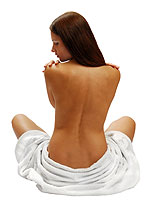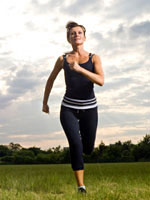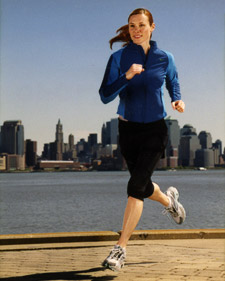?What Are Colds
 What are colds?
What are colds?
Everyone gets a cold from time to time. Children get more colds than adults.
Colds usually last 1 to 2 weeks. You can catch a cold at any time of year, but they are more common in late winter and early spring.
There is no cure for a cold. Antibiotics will not cure a cold. If you catch a cold, treat the symptoms.
What are the symptoms?
Lots of different viruses cause colds, but the symptoms are usually the same:
* Runny nose and sneezing
* Red eyes
* Sore throat and cough
* Headaches and body aches
You will probably feel a cold come on over the course of a couple of days. As the cold gets worse, your nose may get stuffy with thicker mucus.
A cold is not the same as the flu. Flu symptoms are worse and come on faster. If you have the flu, you may feel very tired. You may also have a fever and shaking chills, lots of aches and pains, a headache, and a cough.
If you feel like you have a cold all the time, or if cold symptoms last more than 2 weeks, you may have allergies or sinusitis. Call your doctor.
 What can you do for a cold?
What can you do for a cold?
Good home treatment of a cold can help you feel better. When you get a cold:
* Get extra rest. Slow down just a little from your usual routine. You don't need to stay home in bed, but try not to expose others to your cold.
* Drink plenty of fluids. Hot water, herbal tea, or chicken soup will help relieve a stuffy nose and head.
* Take aspirin, ibuprofen (such as Advil or Motrin), or acetaminophen (such as Tylenol) to relieve aches. Do not give aspirin to anyone younger than 20. It has been linked to Reye's syndrome, a serious illness.
* Use a humidifier in your bedroom and take hot showers to relieve a stuffy nose and head.
* If you feel mucus in the back of your throat (postnasal drip), gargle with warm water. This will help make your throat feel better.
* Use paper tissues, not handkerchiefs. This will help keep your cold from spreading.
* If your nose does get red and raw, put a dab of petroleum jelly on the sore area.
Don't take cold medicine that uses several drugs to treat different symptoms. For example, don't take medicine that contains both a decongestant for a stuffy nose and a cough medicine. Treat each symptom on its own.
A nasal decongestant spray can help your stuffy nose, but make sure you don't use it for more than 3 days in a row. You could get a "rebound" effect, which makes the mucous membranes in your nose swell up even more.
Do not give cough and cold medicines to a child younger than 2 unless you've checked with the doctor first. If your child’s doctor tells you to give a medicine, be sure to follow what he or she tells you to do. Using saline drops or a humidifier may help thick or dried mucus to drain. To remove mucus from your baby’s nose, use a suction bulb to gently suction the mucus out. This is a safer way to treat your baby's stuffy nose.

When should you call a doctor?
Call your doctor if:
* You have trouble breathing.
* You have a fever of 104 ° F (40 ° C) or higher.
* You have a fever of 101 ° F (38.3 ° C) or higher that has not come down after 12 hours of home treatment. Or you have a fever of 100 ° F (37.8 ° C) to 101 ° F (38.3 ° C) that has not come down after 3 days of home treatment.
* You have new symptoms that are not part of a cold, like a stiff neck or shortness of breath.
* You cough up yellow, green, or bloody mucus.
* Mucus from your nose is thick like pus or is bloody.
* You have pain in your face, eyes, or teeth that does not get better with home treatment, or you have a red area on your face or around your eyes.
* Your cold seemed to be getting better after a few days but is now getting worse with new symptoms.
How can you prevent colds?
There are several things you can do to help prevent colds:
* Wash your hands often.
* Be extra careful in winter and when you are around people with colds.
* Keep your hands away from your face. Your nose, eyes, and mouth are the most likely places for germs to enter your body.
* Eat well, and get plenty of sleep and exercise. This keeps your body strong so it can fight colds.
* Do not smoke. Smoking makes it easier to get a cold and harder to get rid of one.
Source:
کد:
برای مشاهده محتوا ، لطفا وارد شوید یا ثبت نام کنید







 جواب بصورت نقل قول
جواب بصورت نقل قول


























